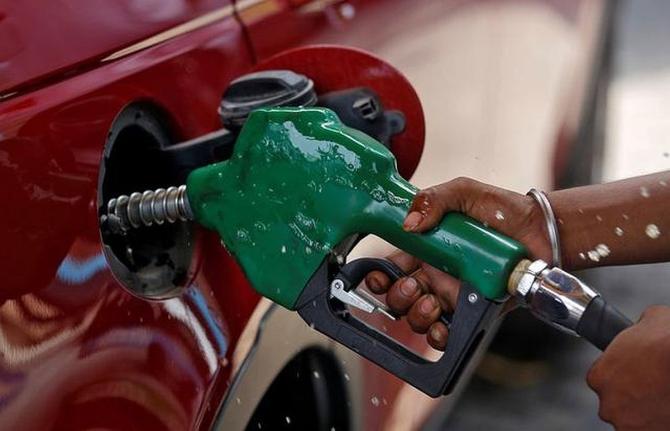These new authorisations were granted to companies with a minimum net worth of Rs 250 crore at the time of making the application.

The ministry of petroleum and natural gas has granted seven authorisations to companies for selling automobile (auto) fuels in the country.
These new approvals are under the relaxed guidelines for authorisation to market transportation fuels that were revised in 2019.
This is expected to make the competition more intense in India’s petroleum retail business.
According to a top oil ministry official, a fresh marketing authorisation has been granted to Reliance Industries (RIL) under these norms.
This is being done since RIL’s existing retail marketing authorisation has been transferred to its subsidiary Reliance BP Mobility (RBML).
This was required since the Mukesh Ambani group has reorganised its petroleum-to-chemicals business.
Another authorisation has been granted to RBML Solutions India under these new rules.
Chennai-based IMC (once called Indian Molasses Company), that specialises in oil terminals, has also got the approval to sell auto fuels in the country.
It had competed for a discovered small field project during the second bid round to explore and produce oil and gas from India.
But IMC could not bag a project. It currently offers liquid storage for multiple ports in the country.
IMC is known for storing petroleum products, liquefied gases, petrochemicals, acids, and vegetable oils.
Assam Gas Company, a Government of Assam undertaking primarily engaged in the gas transportation business, has got an approval for fuel retailing.
According to the company’s website, it has a network of underground natural gas trunk and distribution pipelines that serves 400 tea factories, 1,000 commercial establishments, 31,000 domestic consumers, and several big industrial consumers in the districts of Tinsukia, Dibrugarh, Sivasagar, Charaideo, Jorhat, Golaghat, and Cachar in Assam.
Newly incorporated Onsite Energy has also got an approval for petroleum retailing in India.
According to regulatory filings, it was incorporated in May 2020 and has two directors, Shilpa Shekhar Borhade and Anish Ajit Kunkulol.
Regulatory filings say the company is involved in service activities incidental to oil and gas extraction, excluding surveying.
It is said to offer oil and gas field service activities on a fee or contract basis.
MK Agrotech and Manas Agro Industries & Infrastructure have also got fuel retailing authorisations under the new rules.
MK Agrotech is part of a diversified conglomerate with interests across agricultural products, such as sunflower oil, real estate, and crude oil and gas extraction.
Manas Agro has its own brand of liquefied petroleum gas (LPG or cooking gas) and has also collaborated with Essar Petroleum (now Nayara Energy) for supply of ethanol-blended petrol.
These new authorisations were granted to companies with a minimum net worth of Rs 250 crore at the time of making the application.
In case authorisation is required for both retail and bulk sales, the minimum networth requirement was Rs 500 crore.
According to the 2019 rules, for retail authorisation, an entity has to set up at least 100 retail outlets, of which 5 per cent should be in the notified remote areas within five years of the grant of authorisation.
“It is difficult for these new entities to work on a standalone basis.
"They will need back-end support from some company with ready infrastructure.
"Since they are not into crude-oil refining, they will have to depend on imports, and it will be hard for them to get the entire value chain in place from fuel import to the point of dispensation.
"They will have to tie up with some large company that has such an existing infrastructure in place. They will have to ride on bigger players,” B S Kanth, former director (marketing) at IndianOil, told Business Standard.
“Having got the licence, even bigger players may be keen on a tie-up to leverage their experience.
"It is likely that collaborative entities will come about.
"These may come up in pockets and not on a pan-Indian basis,” he added.
India’s fuel demand has rebounded from the pandemic lows and is expected to report positive growth over last year.
Around 90 per cent of the country’s fuel retailing outlets are currently owned by public sector undertakings. The rest is largely dominated by RIL and Nayara Energy.
Photograph: Francis Mascarenhas/Reuters









